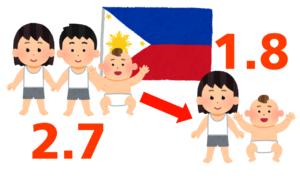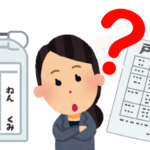
My wife was also using Rakuten Mobile, but a while ago she started having trouble getting a signal at work.
Rakuten Mobile had few base stations of its own and had to borrow KDDI's line in order to expand nationwide. Naturally, there is a fee for KDDI's roaming service. The company has been gradually switching over to KDDI's roaming service from areas where it has established its own base stations, but in April last month, it increased the number of areas where it will no longer receive KDDI's service.
However, it has yet to cover all areas. Therefore, there are blank zones where the signal cannot be received.
The reason why my wife's work place lost the signal is thought to be because it was unlucky enough to fall into this blank area
Lack of signal reception on a cell phone is a fatal flaw.
In addition, Rakuten Mobile suddenly announced on May 13 that it would discontinue plans that had previously offered up to 1G of free traffic.
Not only this announcement, but Rakuten's services have been undergoing a series of changes since last year. The Rakuten Point Ratio, which used to be awarded for using Rakuten Group's services, has been reduced one after another.
Rakuten has been trying to retain customers by giving Rakuten points back to users, creating the so-called Rakuten Economic Bloc.
The collapse of this strategy has caused Rakuten Mobile to incur huge losses.
Rakuten Mobile's operating loss amounted to 421.1 billion yen last fiscal year, and Rakuten's operating loss amounted to 194.7 billion yen as a result of revenue earned in other businesses being eaten away.
Under these circumstances, Rakuten Mobile's price revision and reduction in the rate of Rakuten Points are unavoidable.
That said, from the user's point of view, it is a problem for Rakuten's management to revise its rates when it cannot even provide a proper service.
The rate revision came just as I was thinking about changing telecommunications carriers because I could not get a signal at my workplace, so I immediately decided to change telecommunications carriers.
Since I have a WiFi connection for my smartphone at home and only use a mobile connection when I am out and about, 3 gigabytes is all I need. So, after much consideration, I decided to go with KDDI's budget brand povo, which has a stable communication line.
The SIM arrived the day before yesterday, although it took me a while to complete the online procedure. I was relieved to see that the signal was very good at my workplace as well.
The slightly troublesome thing about POVO is that the basic fee is zero yen, but additional services (topping services) must be purchased each time.
If the customer does not use the topping service for more than 180 days, the line will be terminated.
Incidentally, after Rakuten Mobile announced the rate revision, povo applications increased 2.5 times the previous week.









